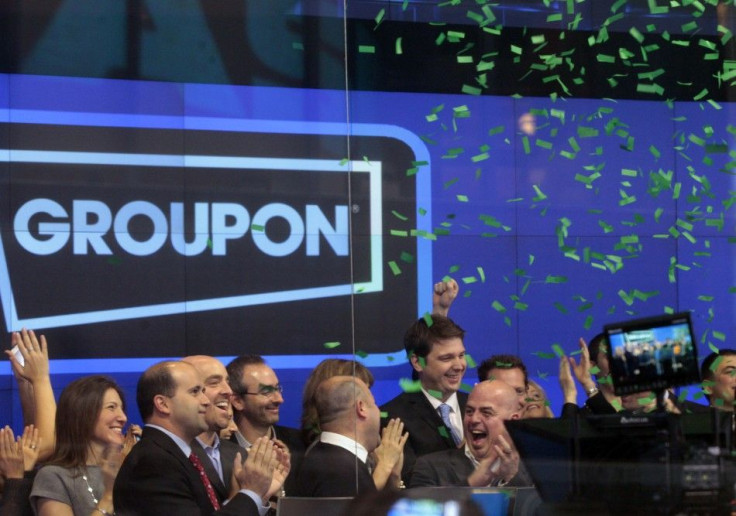How Does Groupon Maintain Its Industry-Leading Merchant Terms?

Daily deals, group buying, group coupons, social commerce and flash sales have emerged as the Internet's new growth segment, modernizing, in the process, the way local consumer services are promoted.
In this environment, daily deals company Groupon, Inc. (NASDAQ:GRPN) dictates industry-leading take-rates, defined as net revenue over gross billings, and merchant payable terms, when compared to the competition.
The organization's 45-50 percent take rate leads the industry, along with its three-installment merchant payable period over 60 days. In comparison, Livingsocial, on average, charges a 40-45 percent take rate and mid-tier players are in the mid-30 percent range; this includes Google Offers.
Groupon has generated rapid gross billings growth, up from $34 million in 2009 to $745 million in 2010 and reaching $2.75 billion in the first nine months of 2011. Groupon's take rate was 37 percent in the third quarter of 2011.
In addition, payback periods also vary, with Livingsocial reimbursing merchants in 15 days, while Google reimburses the first 80 percent in less than a week, with the remaining 20 percent reimbursed by 90 days.
Susquehanna Financial said Groupon was able to dictate these terms because of a large subscriber base that stands at more than 143 million, which is several times larger than Livingsocial.
In turn, Groupon is able to drive significantly higher transaction volumes through merchant doors (#1 daily deal site in most major cities in the U.S., senior analyst Herman Leung wrote in a note to clients.
In the near term, with significant merchant demand, Groupon's merchant terms will hold, in light of its nine-month merchant backlog, suggesting still plenty of growth runway, the analyst said.
On average, merchants repeat with daily deal sites 70 percent of the time after posting their initial deal. Most merchants usually try to start their initial daily deal with Groupon and the second transaction breaks down into: 1) one-third repeating only with Groupon; 2) a third with both Groupon and another daily deal; and 3) the last third with another daily deal site, suggesting limited loyalty to a particular site. Some merchants try other sites to gain perhaps a different customer base.
Groupon, started trading on Nasdaq on Nov.4 after it raised $700 million from its initial public offering, thereby becoming the largest IPO by an Internet company since Google Inc. (NASDAQ:GOOG) raised $1.7 billion in 2004.
© Copyright IBTimes 2025. All rights reserved.




















